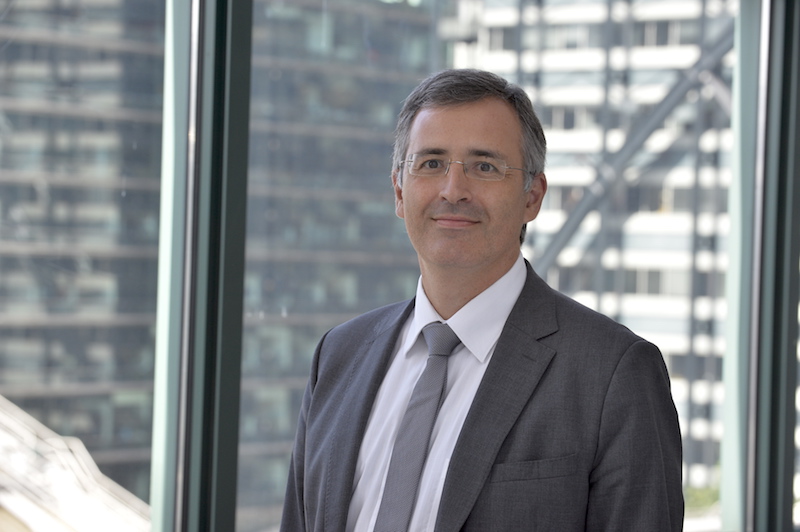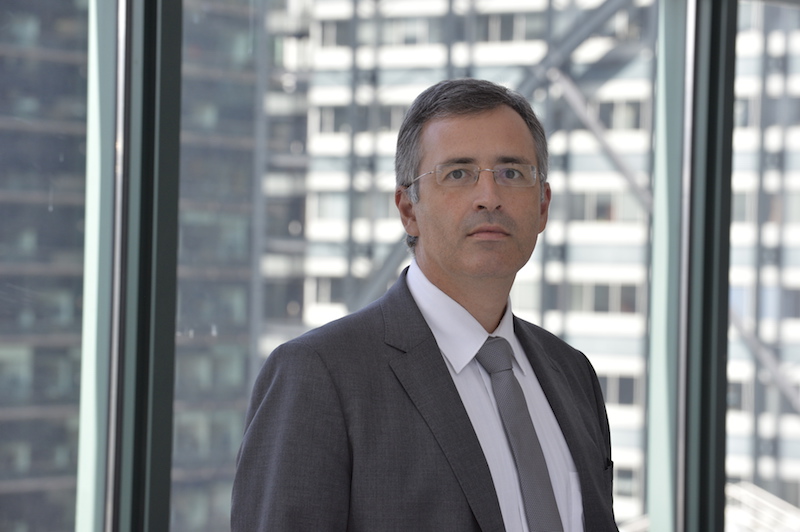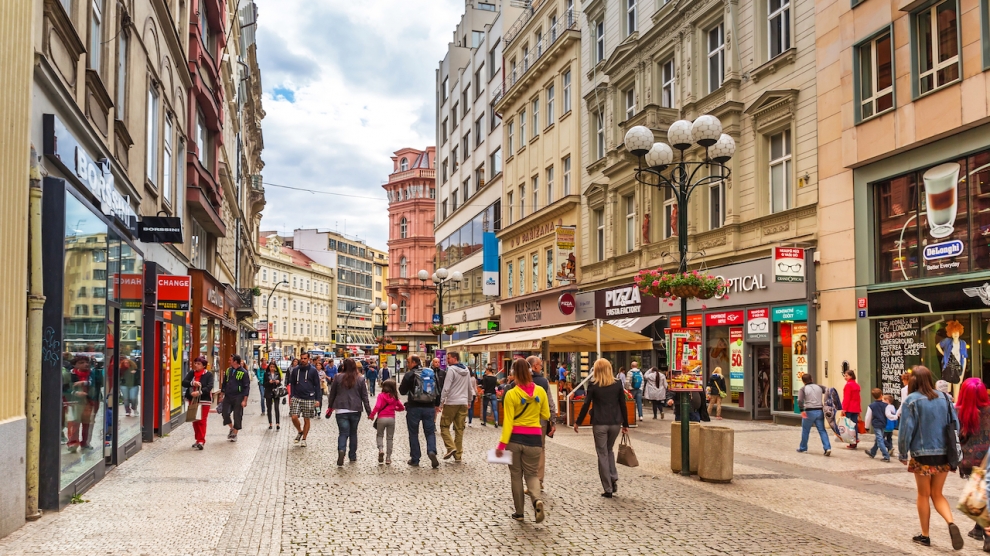Inclusion and green growth are aspects that some emerging Europe countries have not really started taking seriously enough, so institutions like ours need to further increase support and to invest more in both aspects, says Sergei Guriev, chief economist at the European Bank for Reconstruction and Development (EBRD). He spoke to Andrew Wrobel about global trends that might have an impact on emerging Europe, the region’s prospects for growth and the challenges it is facing.
Which global trends do you think have the largest impact on emerging Europe and the broader EBRD region?
Well, there is one major global trend, which is the slowdown in global growth and, some even say, the secular stagnation; that is the fact that the global economy post the 2008 financial crisis is recovering slower than usual after a recession. Of course that affects our countries, because they are looking for advanced economies as a source of investment and export destination. So, the slowdown in the US, and in Europe, affects our countries of operations and we also see slower growth in them. There is also another side to the coin and that is China, which is also slowing. That affects other parts of our region, mostly the countries further east.
The second major trend that is related to the political economy is the debate about globalisation or rather to what extent globalisation has been inclusive or – on the contrary – to what extent it can explain the rise of populism, the slowdown in global trade growth, anti-reform policies, anti-market policies and protectionism etc.
Even if we look at countries that are still committed to globalisation – because many of our emerging Europe countries are small countries that had benefited from globalisation and that cannot grow without it – even those countries are hit by the rise of populism and protectionism. This makes it harder for them to export; it is harder to attract investment and, therefore, harder for them to grow and develop.

Brexit and Trump’s presidency result from that second trend too. How can these affect the region?
First of all, naturally we respect the choice of the American and British people. However, let’s take these one by one. In terms of Trump’s policies, it is still not clear what is going to happen. Some plans have already been scrapped. Therefore, the markets are already starting to ask questions: to what extent the expectations of tax cuts and infrastructure stimulus will actually go through? If they do go through, we should expect a stronger dollar and outflow of funds from emerging markets towards the United States, where interest rates will be increasing and, in that sense, there is also a direct impact on our economies.
Overall, of course, we would be happy to see some smart deregulation. Of course, some of the regulations that have been introduced in recent years have been extremely important for financial stability and preventing future crises. We hope this macroprudential regulation will stay in place. However, there are many regulatory barriers that could be removed and this would promote growth in the US and therefore in the global economy. So, where there are good policies they should be supported.
As for Brexit, it also is a sovereign choice, which was made on non-economic grounds. The economic arguments for Brexit are very weak. We expect a negative impact on the UK economy, and also on the EU countries in the EBRD region. A slowdown in the UK and a slowdown in Western Europe would also affect emerging Europe, so we are concerned. This is going to be an additional cost for our countries. In addition, there is also a lot of uncertainty about exactly how exactly Brexit will be administered.
So what are the prospects of growth for our countries?
We will publish our new biannual forecast during our annual meeting in May. The latest forecast which was published in November 2016, foresees growth in 2017, in general, of 2.5 per cent. Of course we are constantly monitoring developments very carefully; at the moment, we do not expect substantial changes to the November forecast.
In general, we see countries in emerging Europe growing at two or three per cent. Some will grow faster. We see growth in Greece. We foresee growth in Ukraine. We see Belarus and Russia emerging from their recessions, and these are, of course, welcome developments. Overall, 2017 is going to be the first year in a decade when we will see growth in EBRD’s every single country of operation.
I spoke to Professor Leszek Balcerowicz, well-known for implementing the Polish economic transformation programme in the 1990s, about transitioning from a centralised to a market economy. His recipe is to increase the pressure for reforms, to be ready with a package and finally to move with maximum speed. What is yours?
In general, I agree with Professor Balcerowicz. I think it is important to prepare the package of reforms and the communication in a narrative that will increase the pressure for reforms per se. When we say ‘a reform package,’ we mean reforms that not only promote markets, but also provide social safety nets for those who lose out because of reforms. This is an extremely important lesson that we learned from the transition of the 1990s and 2000s. If you do not have inclusive policies, and if you do not communicate the positive longer-term implications of reforms, you may end up with populist politicians taking over and reversing those reforms.
Today, the debate about Poland is very difficult because opinions are polarised. I think the economy is still doing well even though there are many critics of the government: However, you can also suggest that what has been done in the last 25 years has created such a solid economic basis that any government policy cannot really destroy the strong economic fundamentals.
In principle, the figures are still quite good. Compared to other transition countries, Poland has been a great success, overall. Some people might say that Poland will face difficulties in 2018, when the debt to GDP ratio will reach 55 per cent, which, under Polish legislation, is a trigger for austerity measures.
We promote and support reforms that are sustainable in the long run. In many countries, including the West, increases of the retirement age are inevitable. Of course, this should be done ahead of time so that people have time to prepare, to save and to adjust. I think there is no easy way around it.
There are debates about whether retirement benefits should be paid based on need, rather than based on age. That is a separate debate, and if you think about inclusion, we want to allow people to save for their retirement themselves: If they are in need the government should provide social safety nets.
During the EBRD’s annual meeting, we are going to talk about growth and transition and the six elements — competition, governance, green economy, inclusion, resilience and integration. What are the prospects of that in the region? Isn’t there too much historical baggage that can somehow be an obstacle to this more sustainable growth?
Inclusion and green growth are two very different issues, and we actually devoted our latest Transition Report to inclusion. The next Transition Report will have a chapter on green growth. Both are very important issues for the region, and there is not enough awareness yet of environmental sustainability. Some countries have not really started taking it more seriously and institutions such as ours need to increase the support for and to invest more in green projects, which we are doing. Currently, about a third of our annual business volume is green. By 2020, this number is expected go up to 40 per cent.
Where inclusion is concerned it will be difficult to formulate the legacy, because for example, while some of our countries have actually been quite egalitarian in terms of their approach to women, we do have gender gaps in pay. We don’t have gender gaps in education; women have the same level of education as men. Yet women with the same education earn less than men. I think there is a lot of unfinished business there.
There is also unfinished business in terms of opportunity and access to good education. High quality education is very much correlated with parental background as in the West, especially in the United States. The probability of your going to college is much higher if your parents went to college.
You said there isn’t much awareness about these elements of growth. How can that be changed?
I think that people underestimate the importance of public debate and the media. I believe 2016 showed that these matter. The integrity of public debate has a clear impact on political outcomes and therefore on economic policies.
Unfortunately, in many of our countries media freedom is not unconstrained. I think awareness comes from public debate, political competition and media freedom. We understand multi-party democracy is something that includes high quality public debate, media freedom, political competition and civil society.
We were talking about inclusion. Professor Balcerowicz says that countries which have introduced economic market reforms have improved their social and economic situation far more than countries which have not done it. In the Transition Report you talk about height as an important parameter.
Yes, we used it to measure the hardship of the early transition years. Basically, if we look at income data, we see that the first few years of transition were extremely painful for the vast majority of population. In some countries, the incomes of 80 or 90 percent of the population fell. However, income is an imperfect measure because pre-transition incomes did not reflect the living standards fully.
That is why we looked at the height of people who were born at that time. Why? It is because, in developing economics, there is an established case for a relationship between height and the quality of life in the first couple of years of your life. If you are born into a family which is poor, and cannot assure that you have a high quality of life, then you are likely to grow up shorter. Now, this is the time when we can actually see the children of transition growing up to adult height and we can see that on average kids born during the beginning the reform are one centimetre shorter than kids born before and after.

What are the other elements that show that some growth has been achieved, or that the situation social and economic situation has improved?
Now, we can actually trust income data that shows convergence. We can look at self-reported life satisfaction, which is also becoming normal in a sense, that is, if you take a person from our countries and compare them to a person from Western Europe, or non-post-communist countries which have the same income, then you see that these people report the same levels of life satisfaction.
Another issue which is probably related to the issue of height are the rates of mortality and life expectancy. In the 1990s some of our countries, especially Russia and Ukraine, experienced a decline in life expectancy and an increase in middle-aged mortality. These are very severe challenges which have been overcome now. Life expectancy has been growing in those countries and mortality has been declining. Now, this is a challenge that the United States is facing, and we are seeing a wide range of the middle-aged population suffering and experiencing higher mortality rates and lower life expectancy.
I would like to briefly touch on the ease of doing business across emerging Europe. If we look at the Doing Business ranking, we see that a lot of our countries have climbed up the ladder but that does not always seem to be reflected in the ease of doing business. Is it easy to do business in emerging Europe?
I served on the panel that revised the methodology of the Doing Business Survey in 2012 and 2013 at the request of the President of the World Bank, so I share some responsibility for the current methodology. I think it is a very cost-efficient and concise methodology and that we should understand what it measures and what it does not measure. It measures specific aspects, which are correlated with the ease of doing business but it actually targets certain kinds of businesses and looks at certain aspects of business operations.
The other issue is that people look at this as a rating. If you target improvements based on those ratings — create a task force, for example — you can do quite a lot and that will actually be reflected in tangible improvements in the business climate. Now, will that solve all the problems? No, but it is an extremely successful measurement tool in the sense that it drives a lot of improvements in business regulations around the world and in our region in particular.
Of course, if you move up or down five positions in this ranking that could be a measurement error. It could be noise. If you move up a hundred notches as Georgia did, in the 2000s, it reflects really drastic improvements in the business climate. Yet, in some countries, which actually scored pretty well on those ratings, you still see business people facing major challenges related to harassment by authorities, extortion, or bribes, etc. and which, of course, are not captured by this particular rating
So what are the main challenges that emerging Europe is facing now?
At the EBRD we currently have 36 countries of operation and each country is quite unique. Like Leo Tolstoy wrote in his novel Anna Karenina: “Happy families are all alike; every unhappy family is unhappy in its own way.”
If we think about emerging Europe, especially about the western part of our region, and the countries that are on track to becoming European Union members, or already are EU members, the challenges are related to issues which are also common to Western Europe: ageing, a slowdown in technological progress, innovation and knowledge-based industries.
In the eastern part of the region, we have geopolitical risks, problems with governance and corruption, which result in a poorer investment climate and fewer incentives to reform, invest and develop the economies.
As I said, every unhappy country is unhappy in its own way. There is no one size-fits-all solution and that is why, when we think about a country, we try to figure out which aspects of a sustainable market economy are missing and what our country strategies should focus on.
This piece is part of the EBRD 2017 Annual Meeting and Business Forum special report, prepared together with the European Bank for Reconstruction and Development. To register for the event, click on the banner below.







Add Comment